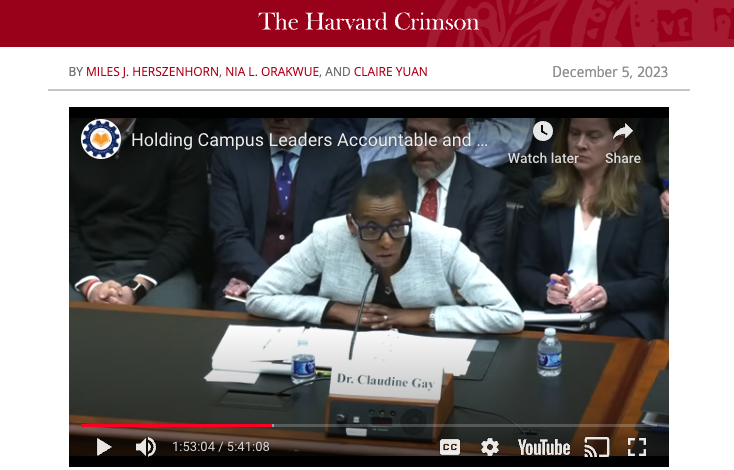Words and stories of the year - and how the "recency effect" drove one of them

Dictionary websites have released their annual Words of the Year, and the selections say a lot about today's information ecosystem.
Merriam-Webster's pick is authentic. From their November 27 blog post about people searching for the term: "A high-volume lookup most years, authentic saw a substantial increase in 2023, driven by stories and conversations about AI, celebrity culture, identity, and social media."
Dictionary.com agreed, announcing on December 12 that their pick is hallucinate – not the traditional definition, but the AI-specific definition, which refers to large language models' tendency to produce false content. Searches for hallucinate increased over 46 percent in 2023 (with a similar increase for hallucination), which isn't surprising given ChatGPT's release in November 2022.
At Truth in Common, we noticed another trend: People being misled by content that was authentic but taken out of context or used to tell a false story – itself a form of hallucination. We saw:
- What happens when people cherry-pick surveillance footage and wrap a false story around it – like in Georgia in the aftermath of the 2020 election. (Update: On December 20, Rudy Giuliani was ordered to begin paying the election workers he defamed, immediately.)
- False claims that an authentic concept – critical race theory – is being taught in K-12 schools continued to drive curricula and behavioral policy. We wrote about how the propaganda campaign worked and how it took hold in Florida.
- Video propaganda related to the Israel-Hamas war – posted by, and targeted to, just about everyone – and its contribution to the instant and dramatic sides-taking around the conflict.
- A six-month effort by the Guatemalan political establishment to leverage social media and the courts to prevent president-elect Bernardo Arevalo from taking office – an effort he calls a slow-motion coup. We covered it as part of our 2023 U.S. Democracy Day content.
- And finally, women leaders at top universities who testified about conflict-related antisemitism on campus then watched their reputations trampled on social media as clips and comments circulated. More on that testimony, below.
2023 kept us on our toes, but as we learn from these situations – and steel ourselves for what will be an explosion of inauthentic and hallucinatory content in 2024 – we bring needed energy to the fight for U.S. and global democracy.
Truth in Common updates
- We established Truth in Common to help people avoid being manipulated by online content. What's also needed, after two years of bootstrapping the initiative, is to bring in some resources so we can educate more people. Will you consider donating as part of my Christmas birthday fundraiser? It's a quick process and whether you've joined a Truth in Common event or just read this newsletter, your support is very much appreciated.

- Librarians for the win!
- In December we helped DC Public Library establish their (mis)Information Lab, in which a group of library professionals are studying up on key topics so they can be equipped to assist and converse with patrons accordingly. Kudos to DCPL head Rich Reyes-Gavilan and program leads Chelsea Kirkland, Meaghan O'Connor and David Quick for embracing a community-driven approach to the issue.
- On December 13 we did a talk for over 100 members of the Urban Libraries Council on Disinformation: What Libraries Can Do that was met with a very enthusiastic response. Thanks here goes to Shari Henry, visionary director of democracy and community impact at ULC.
- In our second gig with a League of Women Voters chapter, on Thursday, January 18 at 3 pm EDT we're doing a webinar with LWV in Contra Costa County, CA on Mis/Disinformation: How to Recognize it, and Respond. Co-speaker McKenzie Sadeghi of NewsGuard will cover the role of AI. We'll share the invite link on LinkedIn; follow there if you like.
When Congressional testimony becomes a set-up
Clips from the December 5 hearing sponsored by the House Committee on Education and the Workforce showed women leaders from Harvard, University of Pennsylvania and MIT answering questions about their free speech policies. Viewing these clips sparked ire in many for what they felt were inadequate responses.
Were these takeaways fair? (If you'd like to learn more you can read the Harvard Crimson's summary of the hearing's highlights or watch some or all of it via this NPR piece.)
And/or – were critics' perspectives influenced by seeing just a few minutes of a five-hour, 41-minute hearing and others' comments on social media, and missing the greater context?
The answer to the first question is up to you. The answer to the second is – of course they were.
Examining the exchange with President Gay
Let's take a look at Representative Elise Stefanik (R-NY)'s questioning of Harvard's president, Dr. Claudine Gay. The clip that made the rounds is at 1:48:06 of the hearing. Interestingly, it's transcribed in a press release on Stefanik's website as well.
Here's a quick recap:
- Stefanik asks Gay whether calls for intifada, which she defines as "a call for violent armed resistance against the State of Israel, including violence against civilians and the genocide of Jews," is acceptable under Harvard's Code of Conduct, or not:
Gay: I will say again, that type of hateful speech is personally abhorrent to me.
Stefanik: Do you believe that type of hateful speech is contrary to Harvard’s Code of Conduct or is it allowed at Harvard?
Gay: It is at odds with the values of Harvard.
Stefanik: Can you not say here that it is against the Code of Conduct at Harvard?
Gay: We embrace a commitment to free expression even of views that are objectionable, offensive, hateful - it’s when that speech crosses into conduct that violates our policies against bullying, harassment, intimidation…
- Then, at 1:53:16, Stefanik again quotes a report by Foundation for Individual Rights and Expression (FIRE) that ranked Harvard last in its College Free Speech Rankings, due to things like sanctioning and terminating professors and revoking a student's admissions offer for racist comments.
- Stefanik ends the series of questions with "This is why I've called for your resignation and your testimony today, not being able to speak with moral clarity, speaks volumes. I yield back."
Analysis
First, note Stefanik's badgering style of questioning. She shuts down Gay's first few responses and has a righteous tone throughout – perfect for social media playback. Stefanik is not Jewish but of course could be speaking as a passionate ally; an alumna, she also has been an ongoing critic of Harvard's actions and policies. Gay's style of collecting her thoughts before answering served her well in avoiding defensiveness in her responses.
Next, if you've heard this story, did you take away the notion that Gay and others' responses lacked moral clarity? If so, you weren't alone. In the ensuing media firestorm, those closing words by Stefanik prevailed – even though Gay had said just two minutes prior that "As I've said, that type of hateful, reckless, offensive speech is personally abhorrent to me":
- The same day, the Harvard Crimson reinforced the message by publishing an op ed by Stefanik entitled "Harvard must find its moral clarity."
- On X/Twitter, ADL's executive director Jonathan Greenblatt said "These leaders' lack of moral clarity in response to this line of questioning is shameful."
It's a rather astonishing micro-example of what's called the recency effect – our tendency to recall (and apparently, parrot) information we consumed recently better than information we consumed previously.
It's also an example of how algorithms amplify a particular piece of information through likes/shares/comments and those with an agenda push it out as well – in this case, apparently, to reinforce existing claims that top universities in the U.S. are irretrievably left-leaning and counter to their inclusion efforts, still discriminate against certain populations. Senator Ted Cruz, also an alum, got into the game as well, calling Gay a "cultural Marxist" on Sean Hannity's program and on X/Twitter as well.
The paradox
The Constitution's first amendment says that the government may not infringe upon our rights to speak, protest and practice religion and journalism freely. Private institutions like Harvard can use the amendment as guidance but must set their own free speech policies for students and staff to follow, and adjudicate claims of policy violation. Doing so is especially complicated when the speech is hateful or promotes violence.
Harvard, and institutions like it, have been grappling with this conundrum for awhile. In 2022, faculty set up a Council on Academic Freedom at Harvard to promote academic inquiry, intellectual diversity and civil discourse on campus. After Hamas's attack on October 7, over 30 student groups signed a widely covered and controversial statement placing the responsibility for the attack solely on Israel. In an astonishing response, signatories then saw their names on a mobile billboard that called them out as antisemites as it drove around campus, organized by an entity called Accuracy in Media.
In late October, Gay set up a task force to address these issues and vowed to tackle antisemitism in a speech at Harvard Hillel. In late November, Harvard joined the list of 86 institutions under investigation by the U.S. Department of Education for race, color or national origin discrimination on campus. The backlash continues today, with some now calling for the university to take a neutral stance (which, one could say, is what they did in the first place).
As you can see, the situation at Harvard is complicated and fraught. Stefanik's challenge that Gay should have somehow stifled pro-Palestinian voices who were exercising their right to free speech put Gay in a no-win situation in the hearing and dismissed the difficulties in doing so in practice. Stefanik's personal track record as an advocate for academic freedom and free speech on campus further confuses the situation.
Social media, meanwhile, misses these nuances in favor of an immediate up/down vote. Were the women leaders denounced simply because their answers to policy questions didn't match the emotion displayed by their questioner or the emotions we expect from women under fire, period? It's a fair question.
What we can do
As media consumers, it's our responsibility to learn the facts and check the impulse to judge based on snippets of information. We must bring a skeptical lens to any story that takes off on social media as quickly as this one did.
To avoid commenting prematurely, we can ask:
Why Elise Stefanik, an elected official who is not Jewish, is standing up so aggressively for Jewish students and communities with zero acknowledgement that the Palestinian people are also being slaughtered? I'm sidestepping the obvious political implications in the interest of fairness; the imbalance is glaring.
Why is an entity called Accuracy in Media doing the same? Why were these particular universities / only women leaders invited?
Who has a political agenda or other motivation, like Stefanik's being removed from Harvard Institute of Politics's advisory committee in 2021 for her election denialism? Who published the free speech ranking report that Stefanik held up in the hearing? Is it a credible or biased analysis?
More important than what you or I think, what do people on campus think? With excellent, free reporting by the Harvard Crimson, it's easy to access first-hand, local accounts. On December 12, for example, the Crimson editorial board wrote "We urge you: Do not allow Congress to tell the story of this moment on campus" and went on to reject calls for Gay to resign.
When did the various events take place? Timing is everything in this conflict; strong, early statements have been revisited and approaches adjusted as the war, public sentiment and influence campaigns have progressed.
And finally – how is an institution supposed to balance free speech-related demands that conflict with one another?
We also should pay attention to those weaponizing this conflict in ways that are even more insidious, like white nationalists setting up social media profiles that appear pro-Palestinian but are actually covers for antisemitic hate content.
What leaders can do
We expect leaders of influential institutions to be qualified, decisive, inclusive and empathetic. Yet we also have a tendency to judge an entire tenure or career on a single statement or moment in time. The risk, when leaders are cancelled on social media, is that emerging professionals may hesitate to take high-profile job offers – especially women, non-binary folks, people of color etc. who are at particular risk for online threats and harassment. Imagine having your institution's hiring practices and your doctoral thesis questioned in mainstream media headlines because of a carefully orchestrated, few-minute video clip from an over five-hour hearing. It's toxic and makes no sense.
Remember: In the early hours and days, we rarely have the full story.
Leaders today are aware that public comment can be clipped, travel on social media and damage personal and institutional reputations. But they may not have the time or capacity to fully prepare. Here are some tips from the spokesperson training toolbox, adapted for our digital ecosystem:
- Do some scenario planning in advance. Consider the agendas of those inviting you to testify, interview or speak. Are you being set up as fodder for social media comment or fundraising emails? If so, what message are weaponizers aiming for?
- Then, write down the main message YOU want to get across in the hearing or interview that takes the above into account – and refutes it if necessary. Practice centering it in your answers.
- Assume there will be curve balls and practice pivoting from them to the main message when they come.
- Be armed with both personal and institutional-level responses. Be warm but professional.
- If a question gives you pause or the questioner starts to get emotional, repeat the question in your answer. Emotional commentary is more likely to be clipped out, and clarifying your answer can help avoid your words being taken out of context. For example: "So I'm hearing you ask about our policies on antisemitic or other hate speech. As mentioned previously . . ."
- Use your breath if you find yourself getting emotional as well.
- Choose the explanation of a buzzword over the buzzword itself. We hopefully are done repeating terms like "woke" that have been co-opted by extremists. As this hearing showed, though, even critical terms like "antisemitism" show up in polarized conversations so often that their meanings can be forgotten; they also tend to be less accessible to begin with. If you think about interviews and talks as teachable moments, you can say "antisemitism, which we define as hostility toward or prejudice against Jewish people, is not tolerated . . . "
- If your words are taken out of context afterward, be prepared to counter with clips and statements that correct the record. If not appropriate for your institution to do so, see if a partner entity can do it – ask them in advance and ensure they're watching live. The rebuttals likely won't match the virality of the original content but it's something and can help appease stakeholders. In most situations, staying silent is a bad idea.
- Boards of directors and trustees should have similar training on potential scenarios and the need to develop a digital crisis-informed response plan.
Hindsight is 20/20
It's so easy for us to reverse engineer what was a very difficult situation for leaders who've been under fire and jumping from crisis to crisis for months. But here's a potential answer that hits on some of the points above:
"I personally have a zero tolerance policy for antisemitism or any form of discrimination, as does my team. Institutionally, even as a private entity we follow the first amendment in respecting student and faculty rights to share their views – a value that many in this room are on the record in supporting. So our policies say that we, as an institution, would only act on either anti-Israel or Jewish or anti-Hamas or -Palestinian rhetoric when it becomes an actual, physical conflict. We can denounce that speech on a personal level but our policies must support people's abilities to share their views without retribution."
What's your take?
Many thanks for your support, and all the best in 2024!
Deanna Troust is founder and president of Truth in Common and 3 Stories Communications. Visit www.truthincommon.org or follow Deanna on LinkedIn, Twitter, Threads or Instagram.

